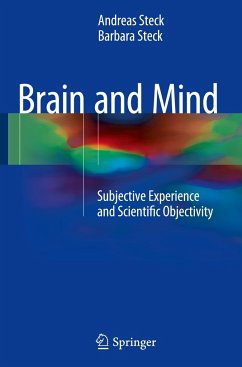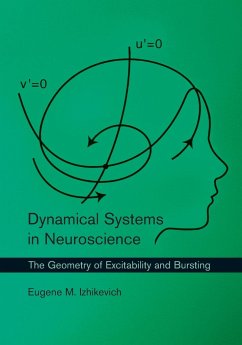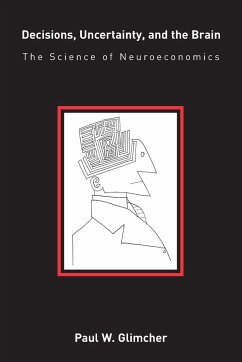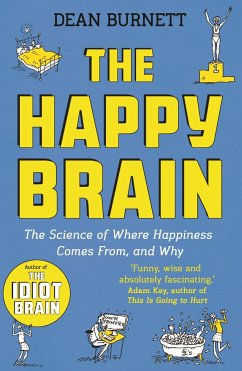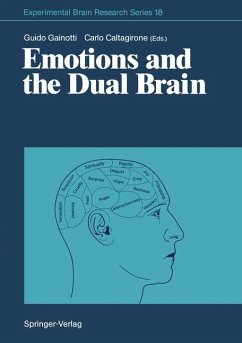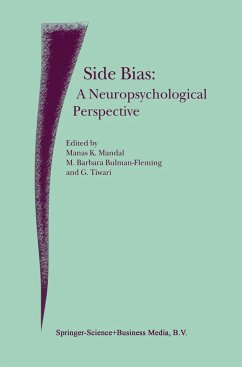
Emotions and the Right Side of the Brain
Versandkostenfrei!
Versandfertig in 6-10 Tagen
38,99 €
inkl. MwSt.
Weitere Ausgaben:

PAYBACK Punkte
19 °P sammeln!
This book focuses on asymmetries in brain structure and their role in emotional functions (such as amygdala in emotional comprehension, the ventro-medial prefrontal cortex in the integration between cognition and emotion and in the control of emotional reactions, and the anterior insula in the experience of emotions).The idea of hemispheric asymmetries in emotional comprehension and expression was first proposed about a century after the first studies showing that the left hemisphere is dominant for language, but it quickly became very popular. Initial investigations considered the right and l...
This book focuses on asymmetries in brain structure and their role in emotional functions (such as amygdala in emotional comprehension, the ventro-medial prefrontal cortex in the integration between cognition and emotion and in the control of emotional reactions, and the anterior insula in the experience of emotions).
The idea of hemispheric asymmetries in emotional comprehension and expression was first proposed about a century after the first studies showing that the left hemisphere is dominant for language, but it quickly became very popular. Initial investigations considered the right and left hemispheres as single functional units, but in the last few years several researchers have focused attention on asymmetries in brain structures playing a critical role in specific components of emotional functions.
Furthermore, interesting data have been obtained by studying emotional and behavioural disorders of patients with asymmetrical forms of frontal or temporal variants of fronto-temporal degeneration.
Elaborating on these subjects requires, on the one hand, a consolidated understanding of how models concerning the relationships between emotions and hemispheric asymmetries evolved in time and, on the other hand, a sound interdisciplinary knowledge of psychology (nature, components and hierarchical organization of emotions) and neuroscience (neuroanatomy).
This volume - intended for neurologists, neuroscientists and psychologists - pursues an organic and consistent approach to provide an overview of these complex and fascinating issues.
The idea of hemispheric asymmetries in emotional comprehension and expression was first proposed about a century after the first studies showing that the left hemisphere is dominant for language, but it quickly became very popular. Initial investigations considered the right and left hemispheres as single functional units, but in the last few years several researchers have focused attention on asymmetries in brain structures playing a critical role in specific components of emotional functions.
Furthermore, interesting data have been obtained by studying emotional and behavioural disorders of patients with asymmetrical forms of frontal or temporal variants of fronto-temporal degeneration.
Elaborating on these subjects requires, on the one hand, a consolidated understanding of how models concerning the relationships between emotions and hemispheric asymmetries evolved in time and, on the other hand, a sound interdisciplinary knowledge of psychology (nature, components and hierarchical organization of emotions) and neuroscience (neuroanatomy).
This volume - intended for neurologists, neuroscientists and psychologists - pursues an organic and consistent approach to provide an overview of these complex and fascinating issues.





